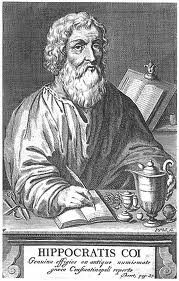Giovanna Spantigati
The Hippocratic Oath
My Articles

"There is no hope." Giulio (an imaginary name), 17 years old, was skiing feeling free and happy. Suddenly, the accident. A sudden fall, his life was over. Then silence, life again. Resuscitation, his parents shocked and terrified. The waiting. He's alive, but ... Life will never be the same. You do not know what it is like, you do not know how to call it. Doctors make all tests. Then comes the sentence: disability. A young paraplegic. Interviews with doctors: "will he ever be able to stand? Will he move his legs? What about his arms? And his hands? " He must keep thinking he's alive, otherwise he will let himself die on that ski run.
Giulio is strong, he looks calm. He knows everything. Two months have passed and he has been trying to have his life back, his youth, his rights. Therapy will be long lasting, but how many times have we heard of miracles. It will take him strong will and sacrifices. Everybody knows it. He looks forward to starting his own fight, to win this challenge, to show that "everything is possible."
But then a physiatrist comes. He takes a look at the X-rays, looks at his tests and says, with arrogance: "There is no hope. He will be forever paralyzed from shoulders down." Honesty does not know what pity is. And there are some doctors who do not even know what humanity is. Hope is part of
the human being. It has nothing to do with illusion. You cannot think it is possible to erase it, to remove it from our minds. Only an electric shock can do that.
Hope is tied to survival. Those who don't hope are done for. And you cannot tell a suffering family "not to hope". How many diagnoses we've heard about which were wrong? I know someone who should no longer move who has become a Paralympic champion and on the contrary I know someone who couldn't get better, but none of them has ever given up hope. It 's only human. Who among us does not hope? We hope to find love, we hope to find work, we hope to have money enough. Why shouldn't a disabled person?
Dear physiatrist, Giulio's mother needs a lot of time to accept the worst. But she cannot, humanly and physiologically do it now. How will it happen? Day by day, slowly, pain and anger will turn into strength, she will be able to carry her burden. Tears will go away and trust will come. She will trust her son, she will trust life. All this with the help of a good therapist, a sympathetic listener, her family unit. It is also very important to share with people who have the same problems so that she won't feel alone. That physiatrist will not certainly be able to help her. He was emotionless, like many other doctors. Being emotionless does not mean being a good doctor. The skill of a doctor, a nurse, a therapist can be seen through their sympathy. A parent, a disabled person, they already know deep down in their hearts what is happening and they are living in terror. In their eyes you can see only distress and anxiety. A doctor's smile or caress is nothing but an act of love. I don't want to generalize, but thinking of our personal story, we can easily recall kind and sympathetic doctors and nurses and know how important it has been.
At the same time we cannot delete the sense of powerfulness we felt in the presence of those who had not been able to give us a smile. The gynecologist who nursed me at my son's premature birth said stiffly: "Forget him. He won't survive." A few days earlier I heard the nurses calling me not by name, but "the miscarriage risk". One year later, a physiatrist, in the presence of her followers and in front of other patients, said, glumly, "but can't you see that he is not normal?" and so on. But these are "only" extreme cases. Dear future nurses and doctors, you are students and know what idealism is, please do not forget humanity, compassion, understanding. Do not abandon your hope to change the world. Do not eliminate the contact with those who suffer, have the courage to look into the eyes of those who are ill and look beyond. And with your humble caress you will be Great Men. That's the meaning of the Hippocratic Oath, 430 BC
Giovanna Spantigati

